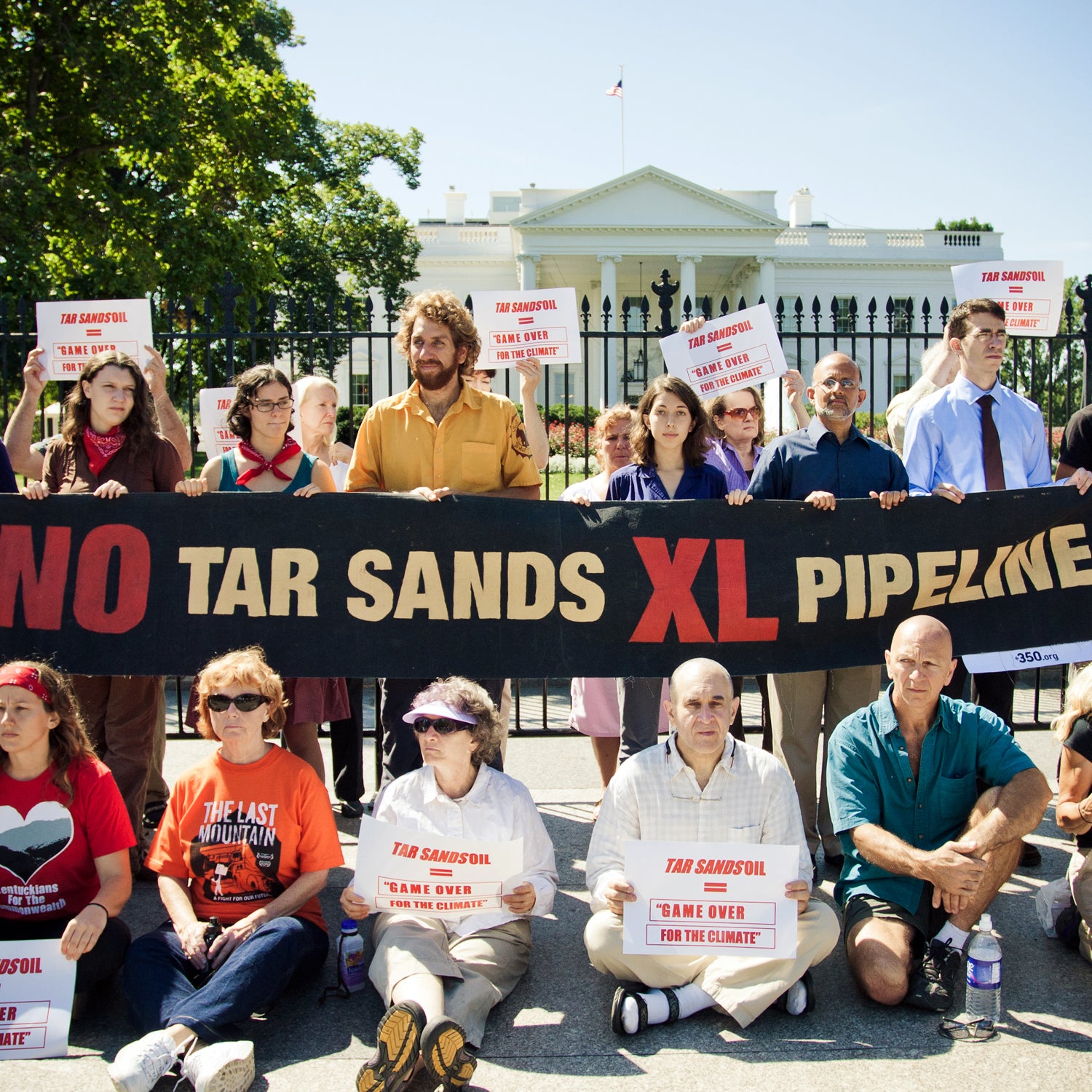The Keystone XL pipeline is only one aspiring tentacle of Alberta’s tar-sands octopus. There are other appendages struggling to reach out to any overseas market that will buy the stuff. So far only two are operational: Kinder Morgan’s 60-year-old Trans Mountain pipeline, which carries petroleum products to the port of Vancouver, British Columbia, and the Enbridge line feeding the Koch brothers’ Pine Bend Refinery in Minnesota. All the others—a proposed line to B.C.’s north coast, another to the Arctic Ocean, an oil-train scheme to Hudson Bay (along tracks compromised by melting permafrost), and a proposed eastbound line to Canada’s Atlantic coast—have encountered determined and growing opposition. From the indigenous to French-Canadian resistance to TransCanada’s planned , citizens have realized that bitumen—the heavy, viscous crude produced by tar-sands excavation—is a highly toxic substance that pollutes at every step, from mining and dilution for pumping to refining and burning, not to mention spilling, as in rivers .��
But at a time when most advanced nations are sincerely grappling with climate change, Canada has dropped out, vying with Australia for top enviro-pariah status. In less than a decade, the country has been transformed, under Prime Minister Stephen Harper, into an aspiring neoliberal petro-state, its currency tied to the price at the pump. Harper’s contempt for science and the environment, and his eagerness to accommodate foreign oil companies, has had a profound impact on both the economy and the character of what was once a fairly progressive country. His plans—and perhaps his leadership—have been thrown into disarray by the current crash in oil prices, but the multinationals, including Koch Industries, who are excavating central Alberta beyond all recognition are invested to the tune of tens of billions of dollars. While they may retract, they will not be retreating anytime soon.
The tragic irony is that no country on earth is better positioned to pioneer the transition to renewable energy than Canada. With its vast land area, abundant natural resources, low population, high level of education, and deep pool of immigrant wealth and talent, it is arguably the richest, luckiest nation on earth. It has enough wind, water, solar, geothermal, and tidal energy potential to power the planet. For this reason, stopping Keystone and its northern counterparts is not only crucial for the environment, but it also sends a clear and unified message that North Americans are ready to embrace a renewable future. In this sense, blocking Keystone XL is much more than the sum of its single part. Its fate will have a profound influence, not only on other proposed pipelines, but on the future of the entire planet.
Vancouver-based John Vaillant () is the author of The Tiger and The Golden Spruce. His first novel,��The Jaguar’s Children, was published in January.


